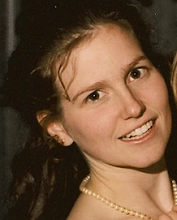Henry Zecher describes the story of the naming of the
Grandfather Clock (2005). He tells us that Grandfather Clocks were originally
known as Long Case Clocks. In 1875 Henry Clay Work wrote the song “My
Grandfather’s Clock.” This renaming caught on and today we refer to these
clocks as Grandfather Clocks. Originally these floor clocks did not keep
accurate time. This particular clock was found in North Yorkshire, England at
the George Hotel, where it still stands today.
It was known to be exceptional. It kept accurate time. As the story goes
the hotel owners were a pair of bachelors, the Jenkins brothers. One of the
brothers died and the clock curiously began losing time. Attempts to repair the
clock failed, and the story culminates when at the remaining brother’s death,
the clock ceased running altogether. Works was an abolitionist who helped thousands
of slaves flee to freedom in the north. He
was sentenced and imprisoned in 1841 and released in 1845, penniless. He began
writing songs. Works was a guest at The George Hotel in 1875, hence the song “My
Grandfather’s Clock.”
Grandfather's Clock (1876)
Words and Music by Henry Clay Work
1. My grandfather's clock was too large for the shelf,
So it stood ninety years on the floor;
It was taller by half than the old man himself,
Though it weighed not a pennyweight more.
It was bought on the morn of the day that he was born,
And was always his treasure and pride;
But it stopp'd short – never to go again –
When the old man died.
CHORUS
Ninety years without slumbering (tick, tick, tick, tick),
His life seconds numbering (tick, tick, tick, tick),
It stopp'd short – never to go again –
When the old man died.
2. In watching its pendulum swing to and fro,
Many hours had he spent while a boy;
And in childhood and manhood the clock seemed to know
And to share both his grief and his joy.
For it struck twenty-four when he entered at the door,
With a blooming and beautiful bride;
But it stopp'd short – never to go again –
When the old man died.
(CHORUS)
3. My grandfather said that of those he could hire,
Not a servant so faithful he found;
For it wasted no time, and had but one desire –
At the close of each week to be wound.
And it kept in its place – not a frown upon its face,
And the hands never hung by its side;
But it stopp'd short – never to go again –
When the old man died.
(CHORUS)
4. It rang an alarm in the dead of the night –
An alarm that for years had been dumb;
And we knew that his spirit was pluming for flight –
That his hour of departure had come.
Still the clock kept the time, with a soft and muffled chime,
As we silently stood by his side;
But it stopp'd short – never to go again –
When the old man died.
(CHORUS)
Words and Music by Henry Clay Work
1. My grandfather's clock was too large for the shelf,
So it stood ninety years on the floor;
It was taller by half than the old man himself,
Though it weighed not a pennyweight more.
It was bought on the morn of the day that he was born,
And was always his treasure and pride;
But it stopp'd short – never to go again –
When the old man died.
CHORUS
Ninety years without slumbering (tick, tick, tick, tick),
His life seconds numbering (tick, tick, tick, tick),
It stopp'd short – never to go again –
When the old man died.
2. In watching its pendulum swing to and fro,
Many hours had he spent while a boy;
And in childhood and manhood the clock seemed to know
And to share both his grief and his joy.
For it struck twenty-four when he entered at the door,
With a blooming and beautiful bride;
But it stopp'd short – never to go again –
When the old man died.
(CHORUS)
3. My grandfather said that of those he could hire,
Not a servant so faithful he found;
For it wasted no time, and had but one desire –
At the close of each week to be wound.
And it kept in its place – not a frown upon its face,
And the hands never hung by its side;
But it stopp'd short – never to go again –
When the old man died.
(CHORUS)
4. It rang an alarm in the dead of the night –
An alarm that for years had been dumb;
And we knew that his spirit was pluming for flight –
That his hour of departure had come.
Still the clock kept the time, with a soft and muffled chime,
As we silently stood by his side;
But it stopp'd short – never to go again –
When the old man died.
(CHORUS)
Zecher,
Henry How an Old Floor Clock Became a Grandfather. The Pride of Olney, official
newsletter of the Lions Club of Olney, Maryland. Volume XXX. No. 76. October
2005. Retrieved on June 30, 2012 <http://www.henryzecher.com/grandfather_clock.htm>

No comments:
Post a Comment